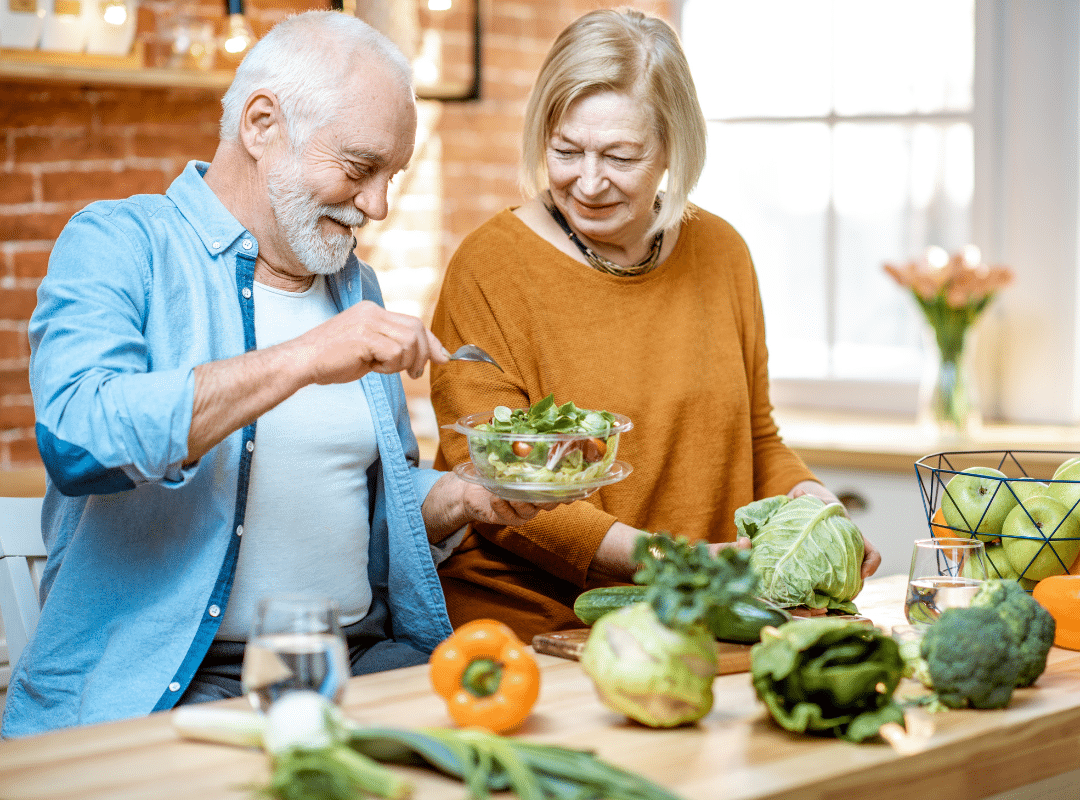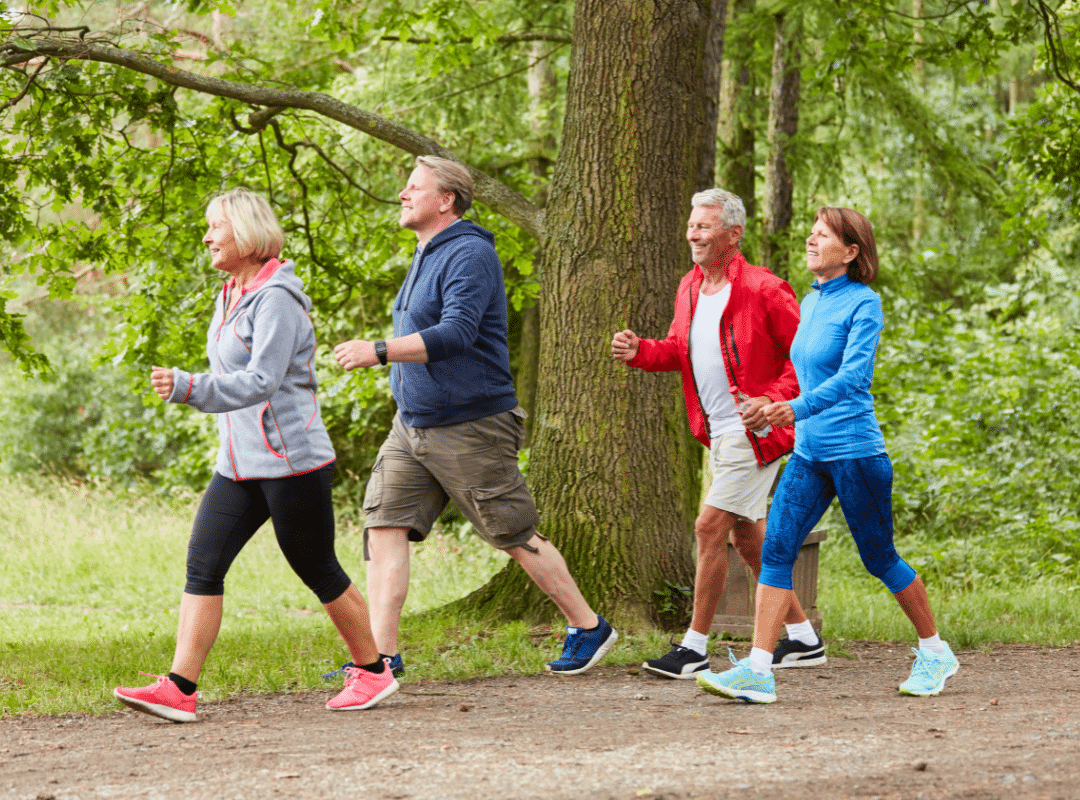Creating a healthy lifestyle for seniors is about more than eating right and staying active—it’s about enjoying each day with vitality, connection, and purpose. At Heritage Manor Assisted Living, residents are supported through every phase of their wellness journey, from nutritional guidance to fun daily routines and mental stimulation. The foundation of healthy living encompasses managing health risks, incorporating physical activity, and maintaining social and mental well-being.
Aging gracefully doesn’t mean slowing down—it means living smarter. Seniors who pay attention to their unique nutritional needs, understand how medications impact the elderly and nutrition, and take part in their community experience more independence and satisfaction. Let’s explore what it takes to build a lifestyle that promotes health, happiness, and long-term well-being.
Prioritize Regular Health Screenings
Routine checkups are essential for preventing illness and catching health concerns early. Annual exams, blood pressure monitoring, cholesterol checks, and cancer screenings like mammograms and colonoscopies are key components of senior care.
At Heritage Manor, levels of care assessment ensures each resident receives personalized support tailored to their current health status. Preventive care not only improves outcomes but saves costs in the long run. Seniors who stay on top of these checkups feel more confident, independent, and informed.
Embrace Physical Activity and Daily Movement
Physical activity enhances mobility, balance, heart health, and mood. From tai chi and walking clubs to dancing and light resistance training, movement can be fun and rewarding. Engaging in physical activity also helps manage weight, reduce the risk of chronic conditions, and support brain health.
Seniors at Heritage Manor participate in fun activities that get them moving while connecting with others. A daily routine that includes motion is a cornerstone of a healthy lifestyle for seniors, and it’s never too late to start.
Focus on Smart Nutrition Choices
Nutrition plays a vital role in senior wellness. Prioritize nutrient-rich meals that include fruits, vegetables, whole grains, lean proteins, and healthy fats. Staying hydrated is just as important—encourage regular water intake throughout the day.
Healthy snacks for senior citizens, like Greek yogurt, apple slices with nut butter, or whole-grain crackers, can stabilize energy and improve digestion. Seniors should also include milk for old people in their diet, as it’s rich in calcium and vitamin D to maintain strong bones.
Learn more about balanced diets from the National Institute on Aging’s nutrition guide and discover how daily activities at Heritage Manor support healthy meal planning and wellness.

Include Healthy Snacks for Energy and Strength
Choosing the right snacks can prevent fatigue and support overall health. Good snacks for elderly people are nutrient-dense and easy to digest. Try options like cottage cheese, fresh berries, boiled eggs, and fortified smoothies.
Smart snacking is also essential for seniors with smaller appetites. Healthy snacks for senior citizens can bridge nutritional gaps, support brain function, and even encourage better sleep. At Heritage Manor, residents often enjoy group cooking classes focused on simple, wholesome recipes.
Identify Medications and Their Impact on the Elderly and Nutrition
One of the most overlooked health factors in aging is how prescription drugs affect nutrition. It’s crucial to identify medications and their impact on the elderly and nutrition, as many drugs can interfere with vitamin absorption or appetite.
Seniors should regularly review their prescriptions with a physician or pharmacist. Keeping a current medication list and monitoring for side effects—especially those affecting digestion or appetite—can prevent long-term issues. Nutritional guidance is often part of the compassionate care approach at Heritage Manor, helping residents align medication use with proper diet.
Keep the Brain Sharp with Cognitive Activities
Mental fitness is just as vital as physical health. Seniors can protect their memory and focus by engaging in reading, puzzles, games, or learning new skills. Regular brain workouts improve attention span and promote confidence.
Explore brain exercises that challenge the mind and encourage fun. These activities not only support a healthy lifestyle for seniors but also help reduce the risk of dementia and cognitive decline.
Stay Connected Through Social Engagement
One of the most important answers to “What do old people need?” is a meaningful connection. Seniors benefit greatly from friendships, group outings, volunteer opportunities, and support circles.
At Heritage Manor, residents participate in a range of social events that foster joy and purpose. Whether it’s joining book clubs or attending local outings, these experiences reduce loneliness and promote better health. Compassionate care means creating an environment where every resident feels heard and valued.
Improve Sleep Hygiene for Better Health
Poor sleep can lead to mood swings, memory issues, and even weakened immunity. Seniors can improve rest by sticking to a regular sleep schedule, avoiding screens before bed, and limiting caffeine.
A small bedtime snack, like a glass of milk for old people or a banana, can support melatonin production. Keeping bedrooms quiet, cool, and dark also helps regulate natural sleep cycles. Getting enough rest supports every other area of wellness, from immunity to energy.
Organize and Monitor Medication Use
Medication management helps seniors avoid dangerous interactions and dosing errors. Use a pillbox or digital reminders to stay on track. Discuss any changes in appetite, digestion, or mental clarity with a healthcare provider.
It’s critical to identify medications and their impact on the elderly and nutrition, and adjust food choices accordingly. Heritage Manor supports residents by helping them track medications and providing guidance on proper timing and nutrition.
What Do Old People Need for a Healthy Life?
So, what do old people need to live well? They need routines that include exercise, mental stimulation, nourishing food, proper hydration, medication safety, and meaningful social interaction. Every element plays a role in their happiness and independence.
A healthy lifestyle for seniors means having access to the right tools and resources, such as healthy snacks for senior citizens, understanding the importance of milk for old people, and creating daily routines that support both body and mind.
Discover Vibrant Senior Living at Heritage Manor
A healthy lifestyle for seniors is built one day at a time—through small choices, consistent support, and joyful connection. From managing medications to enjoying delicious meals and engaging in social activities, seniors at Heritage Manor live life to the fullest.
With compassionate care and a wellness-first philosophy, Heritage Manor Assisted Living empowers residents to thrive. Ready to begin your journey to healthier living? Schedule a tour or call (520) 818-2488 to learn how we support every aspect of your wellness.
Frequently Asked Questions
What’s the key to maintaining a healthy lifestyle as a senior?
The key to maintaining a healthy lifestyle as a senior is a balanced approach that includes regular physical activity, a nutritious diet, and consistent social engagement. Staying mentally stimulated and getting routine medical checkups also support long-term wellness. Seniors should prioritize daily movement and hobbies that bring joy and purpose. A supportive living environment can also make a big difference in the overall quality of life.
What is the most important health habit for older adults?
One of the most critical health habits for older adults is maintaining physical activity. Exercise improves heart health, balance, and mobility, which are essential for independence. It also helps manage chronic conditions, such as arthritis and diabetes. Even light activities, such as walking or stretching, can have significant benefits when performed consistently.
How to keep an elderly person healthy?
To keep an elderly person healthy, focus on preventive care, regular exercise, and a nutrient-rich diet. Encourage hydration, medication management, and cognitive engagement through puzzles or reading. Social interaction and emotional support also play a big role in preventing depression and isolation. Regular doctor visits help monitor and manage any developing health conditions.
How to care for older people?
Caring for older people involves meeting both their physical and emotional needs with compassion and respect. This includes helping with daily tasks, ensuring proper nutrition, and creating a safe home environment. Listening to their concerns and involving them in decisions supports their dignity and independence. It’s also important to coordinate medical care and watch for signs of cognitive or physical decline.


